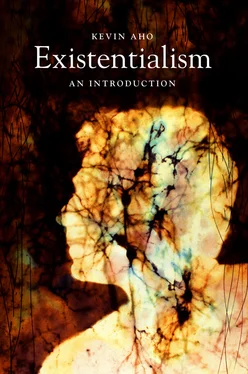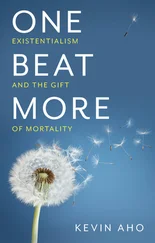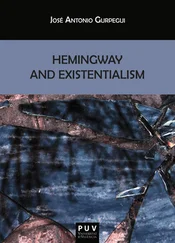Watkin, J. (2001). Historical dictionary of Kierkegaard's philosophy . Lanham, MD: Scarecrow Press.
Weate, J. (2001). Fanon, Merleau-Ponty, and the difference of phenomenology. In R. Bernasconi (ed.), Race (pp. 169–183). Oxford: Blackwell.
Webber, J. (2008). The existentialism of Jean-Paul Sartre . London: Routledge.
Webber, J. (ed.) (2010). Reading Sartre: On phenomenology and existentialism . London: Routledge.
Weber, M. (1948). Science as a vocation. In H. Gerth and C. W. Mills (eds.), From Max Weber: Essays in sociology . New York: Oxford University Press.
Welsh, T. (2007). Primal experience in Merleau-Ponty's philosophy and psychology. Radical psychology 6 (1): 1–19.
West, Cornel. (1993). Beyond Eurocentrism and multiculturalism, volume II. Monroe, ME: Common Courage Press.
Weston, M. (1994). Kierkegaard and modern continental philosophy: An introduction . London: Routledge.
Westphal, M. (1984). God, guilt, and death: An existential phenomenology of religion . Bloomington: Indiana University Press.
Westphal, M. (1987). Kierkegaard's critique of reason and society . Macon, GA: Mercer University Press.
Westphal, M. (1996). Becoming a self: A reading of Kierkegaard's Concluding unscientific postscript . West Lafayette, IN: Purdue University Press.
Wheeler, M. (2005). Reconstructing the cognitive world . Cambridge, MA: MIT Press.
White, A. (1990). Within Nietzsche's labyrinth . New York: Routledge.
Wilcox, J. (1974). Truth and value in Nietzsche . Ann Arbor: University of Michigan Press.
Williams, B. (1981). Moral luck . Cambridge: Cambridge University Press.
Williams, B. (1985). Ethics and the limits of philosophy . Cambridge, MA: Harvard University Press.
Williams, L. L. (2001). Nietzsche's mirror: The world as will to power . Lanham, MD: Rowman and Littlefield.
Wilson, C. (1966). The new existentialism . London: Wildwood House.
Winchester, J. J. (1994). Nietzsche's aesthetic turn: Reading Nietzsche after Heidegger, Deleuze, Derrida . Albany: State University of New York.
Wininger, K. J. (1997). Nietzsche's reclamation of philosophy . Amsterdam: Rodopi.
Wolin, R. (1992). The terms of cultural criticism: The Frankfurt school, existentialism, poststructuralism . New York: Columbia University Press.
Wolin, R. (ed.) (1993). The Heidegger controversy: A critical reader . Cambridge, MA: MIT Press.
Wolin, R. (2001). Heidegger's children: Hannah Arendt, Karl Löwith, Hans Jonas, and Herbert Marcuse . Princeton, NJ: Princeton University Press.
Wrathall, M. (2009). Existential phenomenology. In H. Dreyfus and M. Wrathall (eds.), A companion to phenomenology and existentialism (pp. 31–47). Oxford: Blackwell.
Yalom, I. (1980). Existential psychotherapy . New York: Basic Books.
Young, I. M. (2005). On female body experience: “Throwing like a girl” and other essays . New York: Oxford University Press.
Young, J. (1992). Nietzsche's philosophy of art . Cambridge: Cambridge University Press.
Young, J. (2000). Heidegger's later philosophy . Cambridge. Cambridge University Press.
Zahavi, D. (ed.) (2012). The Oxford handbook of contemporary phenomenology . Oxford: Oxford University Press.
Zaner, R. (1981). The context of self: A phenomenological inquiry using medicine as a clue . Athens: Ohio University Press.
Zaner, R. M., and D. Ihde (1973). Phenomenology and existentialism . New York: Putnam.
Zeitlin, I. M. (1994). Nietzsche: A re-examination . Cambridge: Polity Press.
Zimmerman, M. E. (1986). Eclipse of the self: The development of Heidegger's concept of authenticity . Athens: Ohio University Press.
Abraham. See Kierkegaard absurdity. See Camus alienation
Allen, Woody analytic philosophy
Angst. See anxiety animal rationale
Antonioni, Michelangelo anxiety; neurosis. See Kierkegaard, Heidegger
Arendt, Hannah
Astrada, Carlos
Atwood, George
Auden, W. H.
Augustine authenticity. See Kierkegaard, Heidegger, Nietzsche, Sartre bad faith. See Beauvoir, Sartre
Barrett, William
Barth, Karl
Baudrillard, Jean
Beard, George
Beauvoir, Simone de; ambiguity; America Day by Day ; bad faith; body as situation; freedom; master — slave dialectic; oppression; otherness; recognition; The Coming of Age; The Ethics of Ambiguity; The Second Sex
Beckett, Samuel being-for-itself. See Sartre, transcendence being-in-itself. See Sartre, facticity being-in-the-world. See Heidegger, Merleau-Ponty
Berdyaev, Nikolai
Bergman, Ingmar
Binswanger, Ludwig
Blazer, Dan
Bonhoeffer, Dietrich
Boss, Medard
Bracken, Patrick
Brod, Max
Buber, Martin; I and Thou
Buddhism; dependent origination; dukkha
Bultmann, Rudolf bureaucracy
Burroughs, William S.
Butler, Judith
Camus, Albert; absurdity; “Summer in Algiers”; The Myth of Sisyphus; The Stranger
Christianity cognitive science
Conrad, Joseph contemptus mundi
Cooper, David crystal palace. See Dostoevsky
Danto, Arthur
Darwin, Charles
Dasein. See Heidegger death of God. See Nietzsche deep ecology depersonalization
Descartes, René; Discourse on Method; Meditations determinism
Diagnostic and Statistical Manual of Mental Disorders
Dilthey, Wilhelm
Dostoevsky, Fyodor; Crime and Punishment ; crystal palace; freedom; Notes from the Underground; The Brothers Karamazov
Dread. See anxiety
Du Bois, W. E. B.
Dreyfus, Hubert ek-stasis. See Heidegger
Ellison, Ralph embodiment. See Leib , lived-body, Beauvoir, Marcel, Merleau-Ponty, Sartre
Enlightenment science. See Descartes, Newton environmentalism epoché. See Husserl equipment. See Heidegger ethics. See Buber, Heidegger, Kierkegaard, Levinas, Merleau-Ponty, Sartre
Existenzphilosophie fact — value dualism facticity. See being-in-itself
Fanon, Frantz; Black Skin, White Masks ; overdetermination fatalism feminist philosophy
Fitzgerald, F. Scott
Foucault, Michel
Frankfurt, Harry; wanton freedom; radical; situated. See Beauvoir, Dostoevsky, Kierkegaard, Heidegger, Merleau-Ponty, Nietzsche, Sartre
Freud, Sigmund
Fuchs, Thomas
Galilei, Galileo
Gallagher, Sean
Gaos, José
Gasset, José Ortega y; Meditations on Quixote ; plasticity
Genet, Jean
Giacometti, Alberto
Gilman, Charlotte Perkins
Ginsberg, Allen
Goddard, Jean-Luc
God's-eye view
Greek philosophy
Guignon, Charles guilt. See Kierkegaard, Heidegger
Hamsun, Knud
Hebraic faith. See Kierkegaard
Heidegger, Martin; anxiety; authenticity; Being and Time ; being-in-the-world, being-toward-death; boredom; care; comportment; Dasein; ek-stasis ; equipment; ethics; falling; freedom; Gelassenheit ; guilt; historicality; inauthenticity; “Letter on Humanism”; nature; Nazism; present-at-hand; ready-to-hand; repetition; resoluteness; scientism; solicitude; technology; temporality; “The Question Concerning Technology”; they-self
Hegel, G. W. F.; Phenomenology of Spirit
Hemingway, Ernest historicism
Читать дальше












